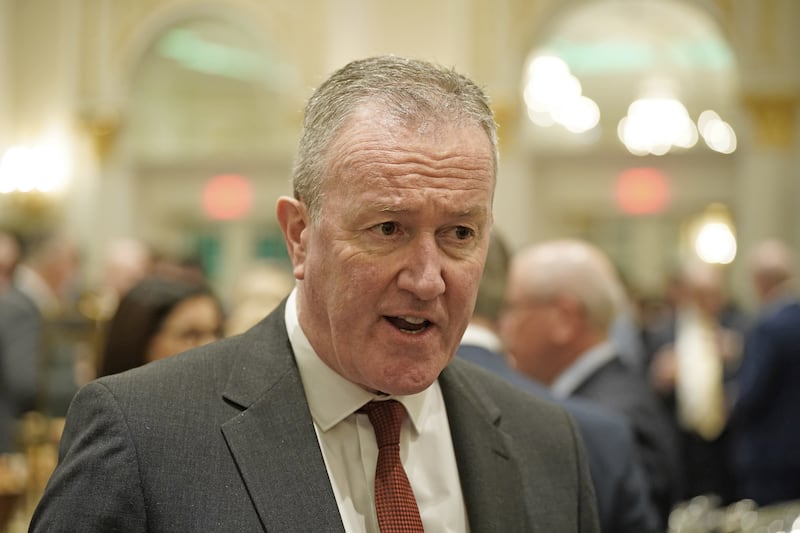Dear Conor Murphy,
Congratulations on your appointment as Minister for the Economy. We wish you well in your new job.
You have identified education as one of your main drivers for economic development. While this is indeed commendable, you might not recognise that our education system, from nursery to university, is a shambles (I know from experience at every level in the system). Until that problem is tackled, you cannot deliver on your economic objectives. Let me explain.
You want to increase university access, but at 11 years of age, 62 per cent of our children are told they are failures, while the other 38 per cent are groomed for university in grammar schools. In my experience, many grammar schools give their first-year students free laptops. Most secondary school students do not even receive pens.

Apart from the immorality of the system, how can you build an economy on legalised inequality of opportunity at the age of 11? It may be insensitive to point out that your party agreed to a DUP veto over the abolition of academic selection in the St Andrews Agreement (Part 4, Section 22). In politics, as in life, decisions based on self-interest tend to bite back.
Of course, you only have responsibility for further and higher education, because your party agreed to divide education between two Stormont departments. The DUP controls our schools.
This means that if two students are sitting the same A-Level, one in a school and one in a further education college, they come under two different ministers, two competing political parties, two sets of civil servants and two different funding models – while following the same curriculum. How’s that for productivity?
The further education system is now largely dysfunctional, mainly because it has been run by civil servants, who in my experience show no understanding of education, further or otherwise. An indicator of the consequences of their bungling is that 300 staff have applied to leave Belfast Metropolitan College.

Your proposal for increased university places is to expand the present system, when what we need is a new system. Seven years from now, our two universities will each need an extra 5,000 places for the projected increase in the number of 18-year-olds. Meanwhile, they have recruited over 6,000 overseas students (sometimes with lower entry grades) so they can collect a £14,000 fee from them.
About 5,000 local students leave annually for British universities because they cannot gain entry here. So a significant number of those we select for university at 11 are destined for export to Britain, while we educate a similar number from overseas.

Contrast that with the system in the south. While we were killing each other, they were developing regional technical colleges, which have now merged into five technological universities. The north has no equivalent.
The south has nine universities (one for every 357,000 people). The north has two (one for nearly one million people) – oh, and the south doesn’t have academic selection.

Technological universities (TU) educate 100,000 students in almost every regional town. The Atlantic TU, for example, has campuses in Letterkenny, Killybegs, Castlebar, Mountbellew, Galway and two in Sligo.
Letterkenny has a smaller population than Derry, Lisburn, Ballymena or Newry. Its TU campus offers over 50 undergraduate courses and 26 masters degrees ranging from cybersecurity to artificial intelligence.
Our economic growth must be based on a similar educational model. I have been making that point for 40 years. Ministers ignored the idea and civil servants laughed at it. What will your attitude be?
You have identified education as one of your main drivers for economic development. While this is indeed commendable, you might not recognise that our education system, from nursery to university, is a shambles
If you are serious about an all-Ireland economy (which is currently just a political slogan), you must start with an all-island education system, built on the southern model.
A partitionist approach will not work, because you do not have the educational infrastructure on which to build a growing economy and the “good jobs” you have mentioned will never arrive.
So what will it be: more of the same, or a new approach to education? It’s your decision.








